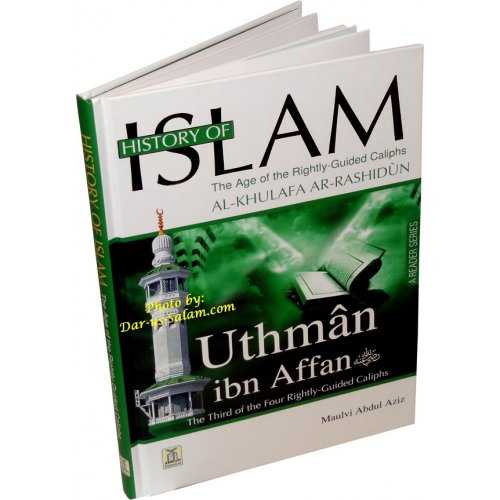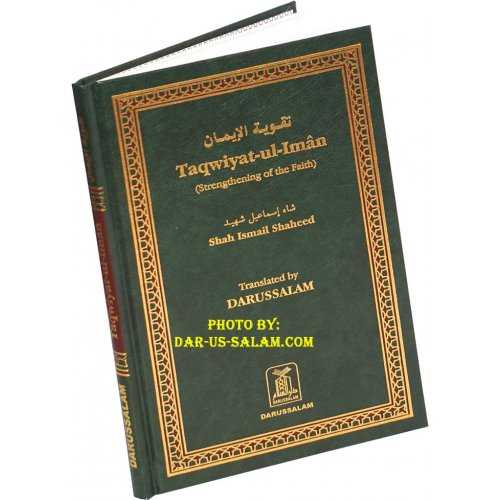Deed Are But By Intentions…
“Surely, All Actions are but by Intentions . . . “
It is narrated on the authority of Amirul Mu’minin, Abu Hafs ‘Umar bin al-Khattab (ra) who said:
I heard the Messenger of Allah (ﷺ) say: “Actions are (judged) by motives (niyyah), so each man will have what he intended. Thus, he whose migration (hijrah) was to Allah and His Messenger, his migration is to Allah and His Messenger; but he whose migration was for some worldly thing he might gain, or for a wife he might marry, his migration is to that for which he migrated.” [Bukhari & Muslim]
This particular hadeeth concerns intention. This is the hadeeth of ‘Umar ibn al Khataab (radiyallaahu ‘anhu), the leader of the believers and the second khalifah.
Ameerul-Mu’mineen, Abi Hafs (may Allaah be pleased with him) said that: “The Messenger of Allaah (sallAllaahu ‘alayhi wa sallam) said:
(The value of) an action depends on the intention behind it. A man will be rewarded only for what he intended. The emigration of one who emigrates for the sake of Allaah and His Messenger (sallAllaahu alayhi wa sallam) is for the sake of Allaah and His Messenger (sallAllaahu ‘alayhi wa sallam) ; and the emigration of one who emigrates for gaining a worldly advantage or for marrying a woman is for what he has emigrated.” [Sahih Muslim, Book 020, Number 4692]

The Narrator
‘Umar ibn al Khataab (radiyallaahu ‘anhu), the second khalifah, was from the notables of Quraysh. He accepted Islaam in the fifth or sixth year after the advent of Prophet Muhammad’s (sallallaahu ‘alayhi wasallam) message, and in his acceptance of Islaam there was a might for the Muslims. He attended all the battlefields and took the line after Abu Bakr’s (radiyallaahu ‘anhu) covenant to him and he established the Khilafah in the best way after Abu Bakr. In the 23rd year (after Hijrah), four nights before the end of the month of Dhul Hijjah, he was stabbed by a magian after he made the takbeer for Salaatul-Fajr. He was carried to his home and he died three nights later. He was buried with the Prophet (sallallaahu ‘alayhi wasallam), and Abu Bakr in the apartment of ‘Aa’ishah (may Allaah be pleased with her). And his Khilafah lasted ten years six months and a few days. May Allaah be pleased with him and with all the companions.
The Subject and Overall Explanation
The subject of the hadeeth is making clear the rank of the intention vis-a-vis the actions. This is a great and comprehensive hadeeth, making clear that the intention is comprehensive, covering all actions such that there is no action without intention. And therefore, the actions correctness or corruption, the reward upon it or the punishment, is dependent upon the intention. And each person shall have but that which he intended, whether it is a noble objective or a lowly, despicable one.
The Prophet (sallallaahu ‘alayhi wasallam), made that clear in order to incite the doer to aim high in his intention seeking Allaah’s Face and the Final Abode and to keep away from the lowly intentions and base ranks. So if the intention is correct, intending the Face of Allaah (subhaanahu wa ta’aalaa), then it is acceptable and if otherwise then it will not be (acceptable) because Allaah (subhaanahu wa ta’aalaa) is Most Sufficient and in no need of partners.
Then the Prophet (sallallaahu ‘alayhi wasallam) gave a similitude in migration so that it may be reference for the rest of actions. So those who migrate have different intentions and thus the reward will vary to a great extent, even though the action is one (and that is the migration). So whoever migrates to Allaah and His Messenger (sallallaahu ‘alayhi wasallam), seeking the reward of Allaah and the victory for the Deen and giving help to the Deen then he is the sincere Muhaajir (immigrant), who attained in his intention the highest and most noble objectives. And whoever migrates seeking this lowly life and its vanishing enjoyments is the one who went base in his intention and therefore of the Hereafter he shall have no share. The one who migrates from the land of shirk seeking the reward of Allaah and the protection of His Deen and the support of the Deen and seeking to learn the Shari’ah, so his hijrah (migration) is fee sabeelillaah and Allaah will keep him steadfast on that.
And the intention distinguishes the worship from the habit. Take for example al-ghusl (taking a bath): If it is done intending to lift the janabah (the sexual defilement) then it is ‘Ibaadah (worship). And if it is done for cleansing or to cool off then it is ‘aadah (a habit).
Audio Lecture:
From the Benefits of this Hadeeth
1. Emphasizing the importance of the Niyyah (intention) concerning the actions. And that the correctness of deeds and the recompense is in accordance with the intention.
2. Inciting to have sincerity in the intention and making clear the merit of that.
3. Warning from seeking and intending this lowly life in our actions.
4. Showing that people differ concerning their intentions and that each will have that which is in accordance with his own intention. (A man will be rewarded only for what he intended.)
5. At-Taharatu minal `amal (purification is from actions), and therefore it cannot be established without a Niyyah (intention). Everyone who performs the purification, then his purification is in accordance with his intention (and this is the point of evidence in this hadeeth which fell under the chapter of purification).
6. The excellence in teaching by the Prophet (sallallaahu ‘alayhi wasallam), and his perfect eloquence and clarification where he mentions the foundations and the principles foundations then he explains them by examples.
This hadeeth is evidence for the intentions place is the heart and utterance of it is an innovation. Also, it is a must to be careful concerning ar-Riyaa (showoff and seeking fame for the sake of this life). And that the hijrah (the migration) from the land of shirk to the land of Islam is from the most meritorious of deeds if the Face of Allaah is intended in that. This is in summary the points relevant to this matter.
The Questions for this Hadeeth
- What is intended by hijrah (migration) in this hadeeth?
- How is the manner of migration to the Messenger (sallallaahu ‘alayhi wasallam), after his death? What does it mean?
- Why did the author (rahimahullaah) chose this hadeeth of ‘Umar in this chapter of purification? What is the point of relevance?
- When did ‘Umar accept Islaam?
- What is the Islaamic meaning of Taharah (purification)?

Don’t forget to comment & share. Also please click our ads, they pay the bills. jazakallahu khayr.


